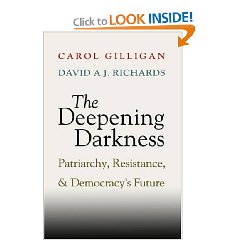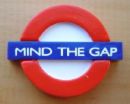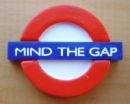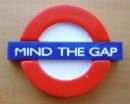
Epic Work, Small Blinders, Over-All a MAJOR Integrative Work
Having said that up front, I stayed with five stars because this is an epic work, and I am deeply impressed by the rigorous documentation in notes, the spectacular bibliography, and the deliberate mention of names of minds being quoted in the body of the book, a certain mark of integrity that I always look for. Hence, while some of the points below in my notes come without the cited source, be assured that the authors have been meticulous.
QUOTE p. 19: “…patterns of injustice and moral slavery are supported by the repression of resisting voice and to show how such resisting voice is rooted in the human psyche and preserved in cultural forms that preserve and maintain it. …What patriarchy precludes is love between equals, and thus it also precludes democracy.” For the political science version of this, see The modern state.
Part I starts with Roman Patriarchy and if you are not a cultural studies ancient literature obsessive, you can skim most of this. I have a note: “marvelous handbook for teaching literature as culture & psyche.” See The Manufacture Of Evil: Ethics, Evolution, and the Industrial System, American Fascists: The Christian Right and the War on America, and On the Psychology of Military Incompetence for the modern equivalencies…and other books I have reviewed.
Part II covers resistance across time and culture and is a brilliant survey in detail–while leaving much for others to cover in follow-on works–of religion, psychology (notably a wonderful chapter on Freud first embracing women's voices and then rejected them), the artists, and politics. The Catholic Church comes in for its fair share of condemnation as a patriarchal organization as well as a criminal and hypocritical organization, but it is here that I note the immaculate conceptions the authors both portray of Jews and Israel–“can do no wrong” gets annoying after a while.
Part III, the shortest part, provides a once-over on western colonialism, the war on terror, and where we are going wrong now in seeking to turn back the progress made from the 1960's. All good stuff.
Here are my fly-leaf notes and a couple of quotes.
+ Gender and how gender equality and sexual tolerance are handled is both the foundation for democracy (dignity and equality for all) and the canary in the coal mine for failing democracy such as we have in the USA.
+ Resistance, once it acquires critical mass, is the pre-condition for being able to achieve transformation. This is a very important point and merits its own book. See my review of Responsible History for supplementary insights from another author.
+ Over-all this is a fascinating holistic view of cultural relations and why the matter. I particularly appreciate the focus on how important “feelings” are and how the repression of feelings, including sexuality, cuts off half the soul-brain for the questionable desire to assert control.
+ I could not stand the “femi-nazis” in my own era of learning (1970's) but now they have come of age. It is no longer about aggressive women trying to fight men on men's terms; what we have here is brilliant women making a well-documented case for how stupid men are to fall for the patriarchy propaganda, and THAT I can respect. This book, for those of us not familiar with the Voices literature, is a milestone.
+ I completely buy-in to the author's view that patriarchy supports racism, Puritanism, homophobia, and anti-Semitism, the latter with a grain of salt. As “Responsible History” documents, way too many charges of anti-Semitism are defamation and no longer have standing in court.
+ The author's make a compelling case that a Republic in which the people are sovereign, equal, and entitled to equal voice, is completely anti-thetical to a top-down command and control patriarchy. Others have made this case and described Epoch B leadership, bottom up inclusive deliberative democracy. I cannot do justice to the originators, but see All Rise: Somebodies, Nobodies, and the Politics of Dignity (BK Currents (Hardcover)) and Collective Intelligence: Creating a Prosperous World at Peace for a taste.
+ They discuss how repression imposes disassociation that blocks ethical development as well as resistance.
+ They discuss the contradictions in laws that force women to disassociate their intelligence from their sexuality. I am moved by their citation of the work of others in which young girls learn they cannot have BOTH voice (honesty) AND relationships (steeped in patriarchy).
+ I am sympathetic to their discussion of fascism as over-compensation for male humiliation that becomes a psychological basis for violence, and I am even more in turn with the varied observations that fear feeds violence.
They conclude: “The corruption of manhood has been our theme.” They discuss the tension between voice and violence, and reiterate that the demonization of pleasure requires a split in consciousness–put another way, the USA has lost its mind.
QUOTE p. 266: “As we have found the roots of intolerance–whether racist, sexist, or homophobic–in the traumatic rapture of intimate relationships that marks the initiation into patriarchy, so the splits between mind and body, thought and emotion, self and relationships signal a disassociation that keeps us from knowing what we otherwise would know. It impedes the voice of experience, grounded in the body and in emotion and fostered by relationships, that would speak to the voices of authority, thus posing a threat to democracy in the same ways that totalitarianism targets the functions of the human mind.”
We're there. See Grand Illusion: The Myth of Voter Choice in a Two-Party Tyranny
See also:
Radical Man
Counterculture Through the Ages: From Abraham to Acid House
Click Here to Vote on Review at Amazon,
on Cover Above to Buy or Read Other Reviews,
I Respond to Comments Here or There








